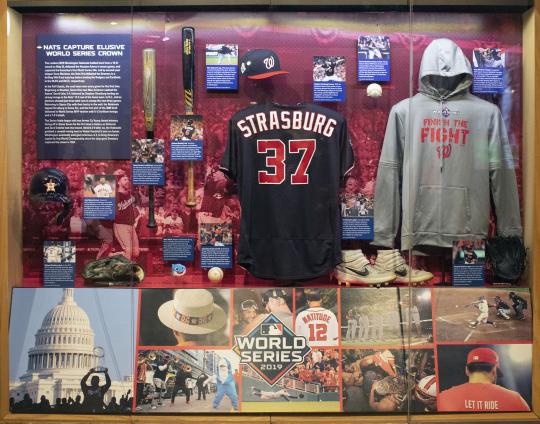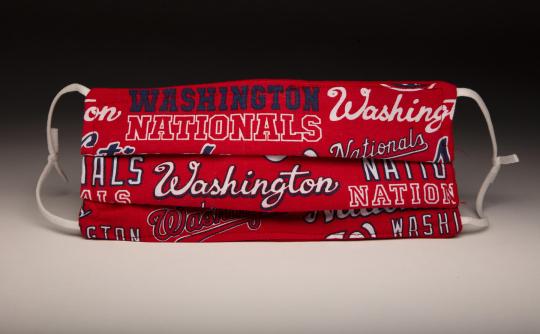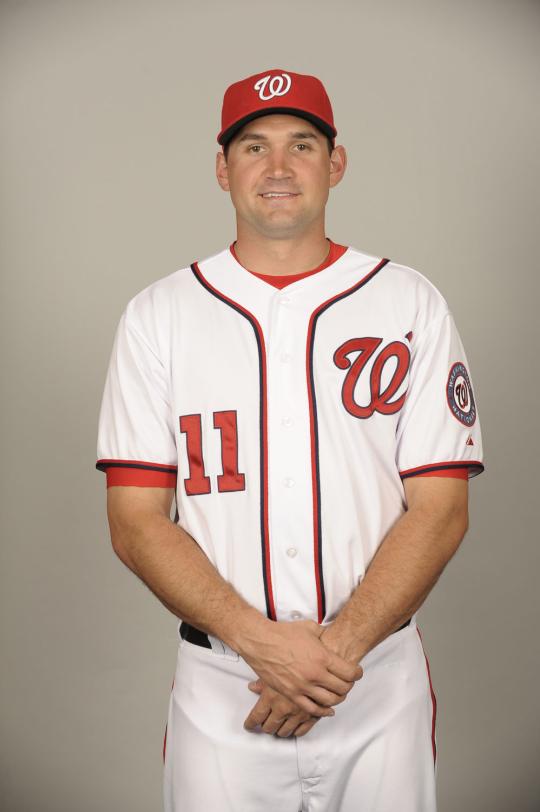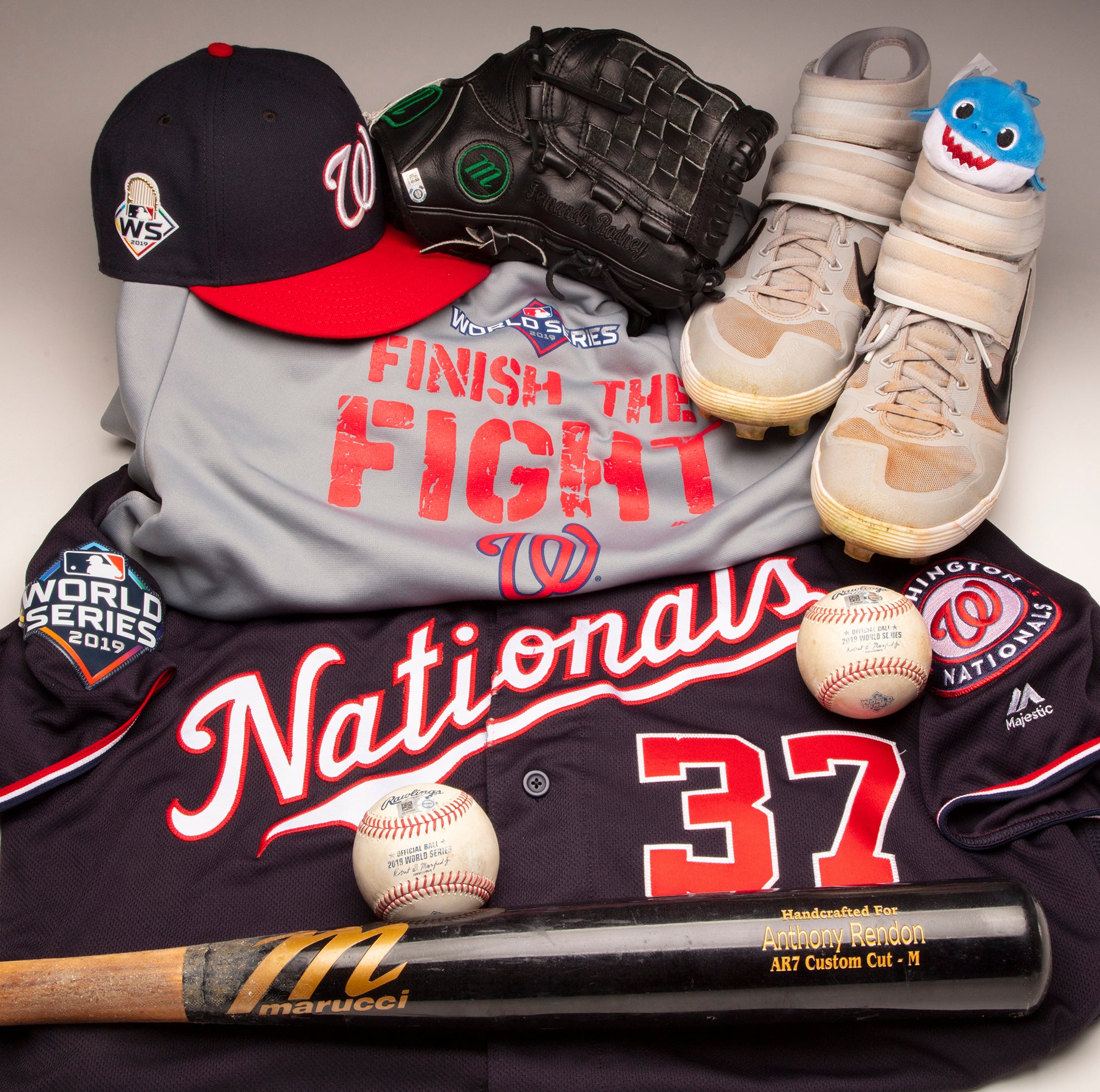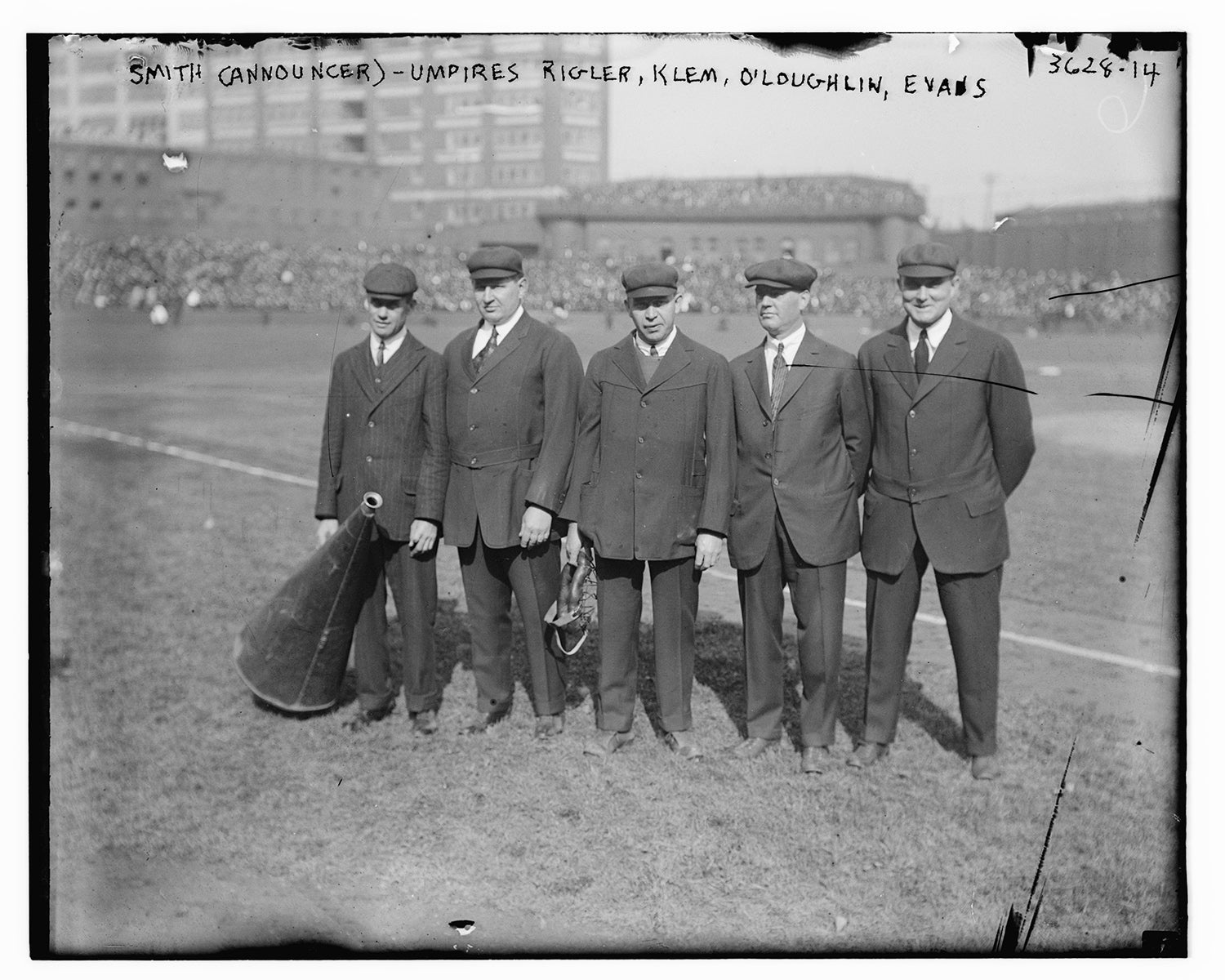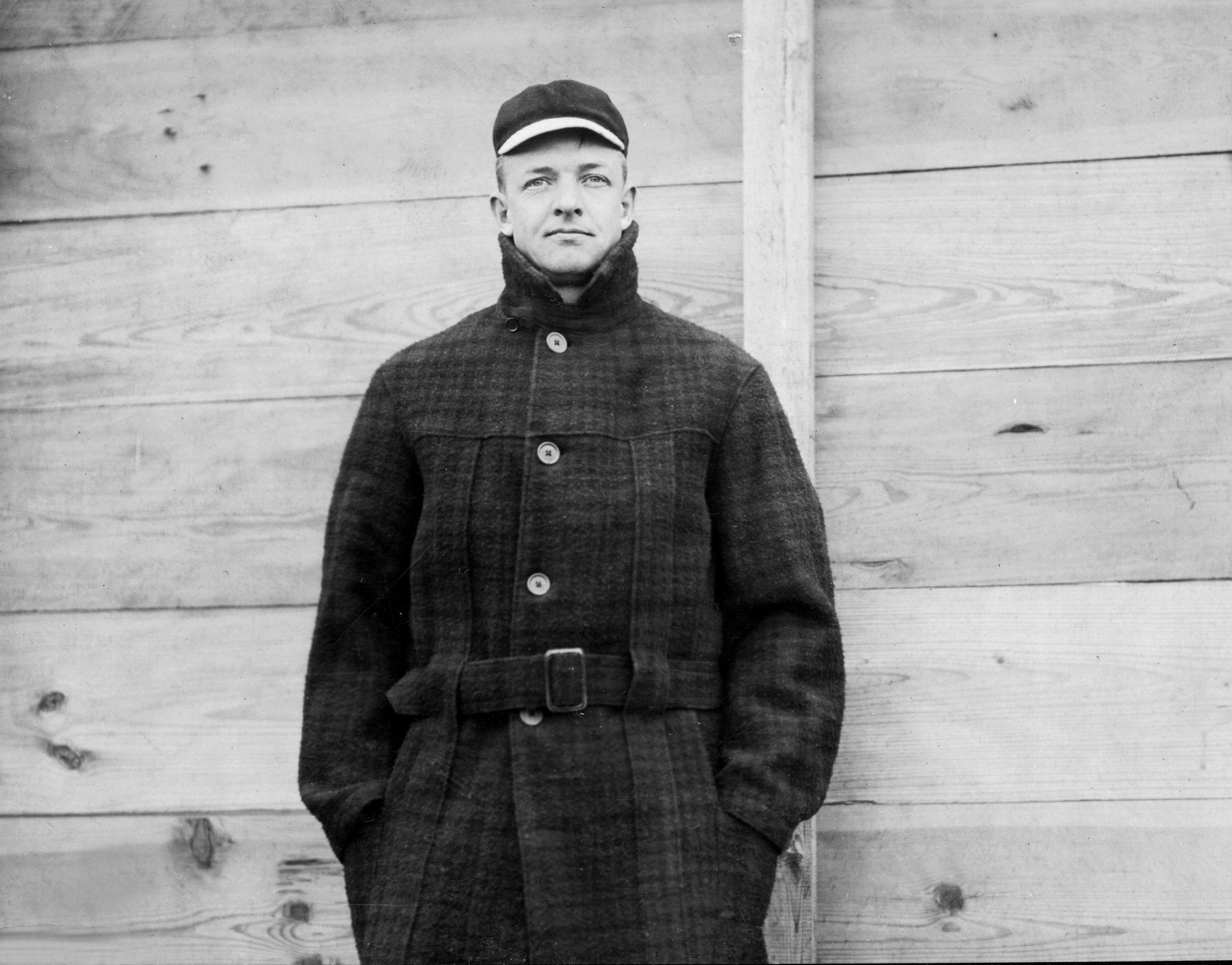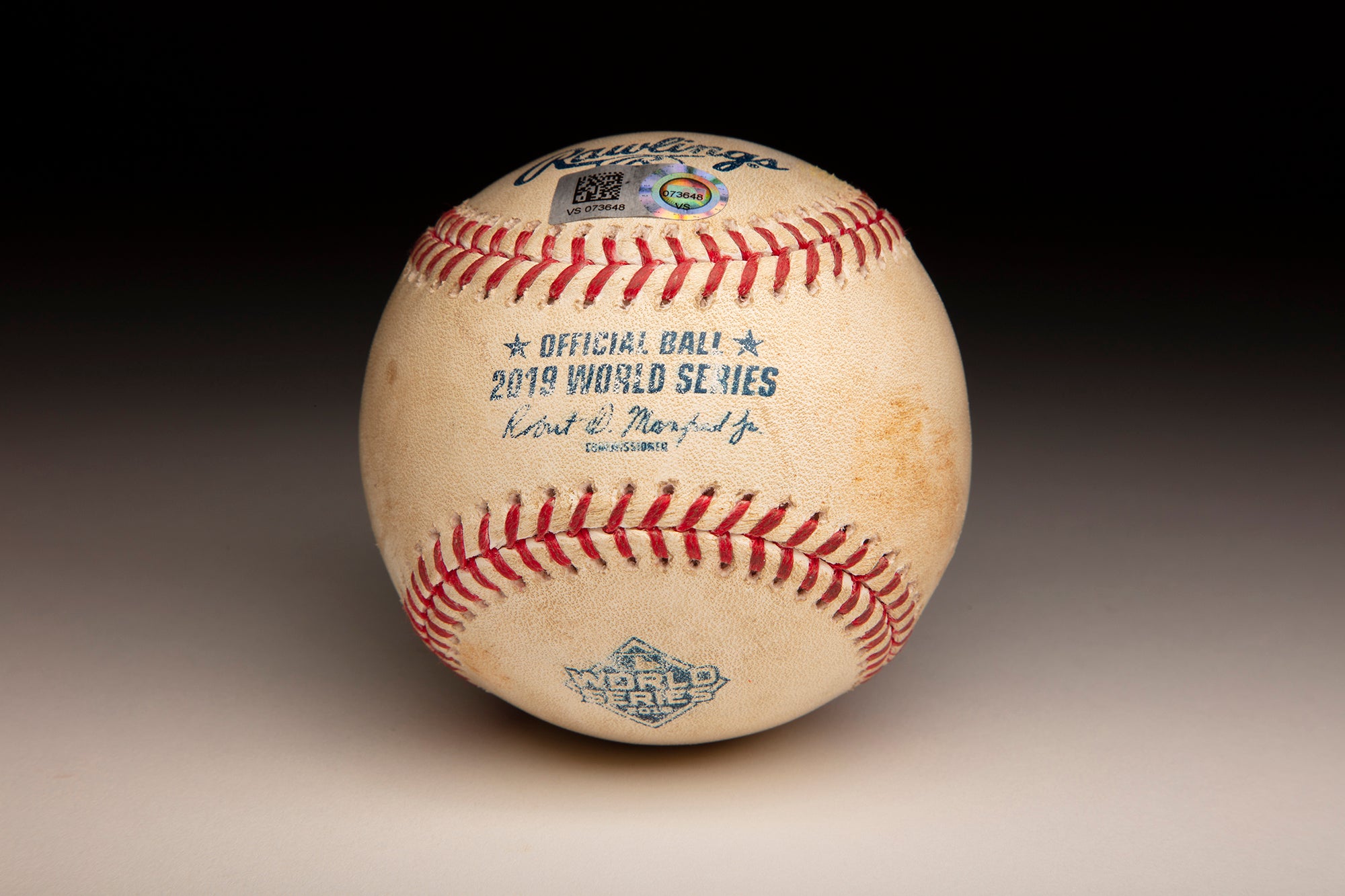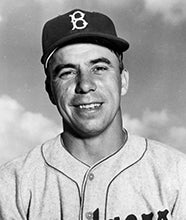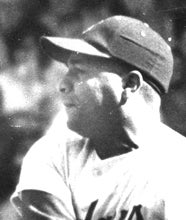- Home
- Our Stories
- Masked Fan
Masked Fan
The 1940s were a golden decade for New York baseball. The Yankees, Brooklyn Dodgers and New York Giants all called the Big Apple home. The Yankees were particularly successful, winning four World Series titles during that decade.
With that sort of record, it’s hard to blame a Brooklyn kid for turning toward the Bronx.
Hall of Fame Membership
There is no simpler, and more essential, way to demonstrate your support than to sign on as a Museum Member.
“Half of the people in Brooklyn, half of the kids in the street like me, were Yankees fans, and half were Dodger fans…We used to spend all of our time arguing who’s better: Duke Snider or Mickey Mantle? Yogi Berra or Roy Campanella? Pee Wee Reese or Phil Rizzuto?” Dr. Anthony Fauci, director of the National Institute of Allergy and Infectious Diseases (NIAID), recalled in an interview with the New York Times.
Today, Fauci has a piece of history to call his own in Cooperstown.
Fauci was born in Brooklyn in 1940, and when he wasn’t delivering prescriptions by bike for his parents’ pharmacy he was playing sports. He played baseball in the Brooklyn sandlots and later captained the Regis High School basketball team.
His athletic career came to an end when he enrolled in the College of the Holy Cross in Worcester, Mass., where he melded study of the classics and philosophy with pre-med classes. Medical school marked a return to New York, where he attended Cornell University Medical School, graduated first in his class and served his internship and residency at what was then known as the New York Hospital-Cornell Medical Center.
In 1968, Fauci was hired as a clinical associate in the Laboratory of Clinical Investigation at the National Institute of Allergy and Infectious Diseases, and he swiftly rose through the ranks first as Head of the Clinical Physiology Section, then Chief of the Laboratory of Immunoregulation. In 1984, he was named director of the NIAID.
A press release from that appointment cites the then-43-year old as “an internationally renowned expert on the immune system” and whose “unique background, particularly in the fields of immunology and infectious diseases, will be of key importance in maintaining and accelerating momentum in these crucial areas of research.”
Dr. Fauci has remained in this role and has been instrumental in leading the United States’ efforts to combat HIV/AIDS, SARS, the swine flu pandemic and COVID-19.
In 2020, he became a member of the White House Coronavirus Task Force, created to address the COVID-19 pandemic within the United States. It was in this capacity that he donned a Washington Nationals facemask to testify before a House Committee.
The mask features the distinctive “curly W” and the team name in various typographies on a red background. Face masks are recommended by the Center for Disease Control (CDC) to prevent the spread of COVID-19, and are currently required for all visitors at the Hall of Fame and Museum.
Dr. Fauci is a self-professed Nationals fan – dating from when the franchise relocated to Washington D.C. in 2005.
“It kind of triggered in me that kind of fierce affection for a team that I hadn’t had since I used to idolize all the Yankees,” he told the New York Times. “I just fell in love with the Nats. I don’t consider that I’m being disloyal to the Yankees. I consider it as sort of a replacement for my boyhood love for baseball, which I still have.”
In an April interview with the Nationals’ Ryan Zimmerman, Dr. Fauci remarked that he had “been a fan of [Zimmerman’s] since he was drafted out of the University of Virginia,” and expressed his hope for the return of the sport.
“I hope there’s some form of baseball this summer, even if it’s just for TV. I feel that strongly, one, because I’m an avid baseball fan but also because it’s [good] for the country’s mental health to have the great American pastime be seen.”
“I’m living in Washington,” Dr. Fauci said later on in June. “We have the world champion Washington Nationals. I want to see them play again.”
The 2020 MLB season, at 60 regular-season games, will be the most truncated in the league’s history. In a year when the major storyline is not about what players are doing on the field, but simply that they’ve taken the field at all, Dr. Fauci’s mask is an important way to tell the story of this period of the National Pastime.
Isabelle Minasian was the digital content specialist at the National Baseball Hall of Fame and Museum

